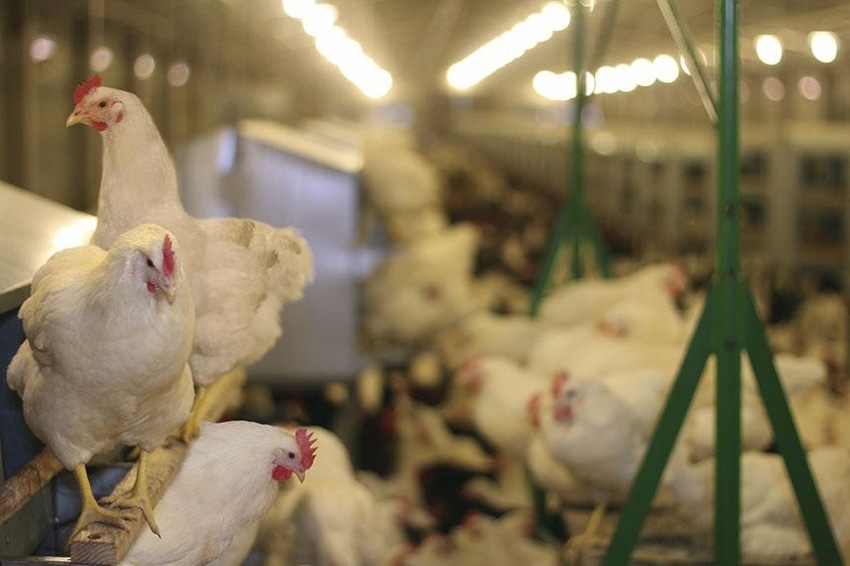This year’s ballot will include Proposition 12, which establishes additional space requirements for egg-laying hens, pigs and veal calves.

California voters once again hold in their hands the fate of animal producers not only in their state but the country when they head to the ballots Nov. 6 regarding Proposition 12. Similar to Prop 2, which passed in 2008, the proposed amendment would establish minimum space allotted per farm animal and requires cage-free production systems for egg-laying hens by 2022.
Ken Klippen, president of the National Association of Egg Farmers, has been on several national broadcasts to explain why egg farmers are opposed to the initiative and the costs from an animal health and consumer perspective. He said Prop 12 will be less humane, especially as cage-free systems have led to higher mortality rates, exposure to higher mortality rates and disease. Specifically, California is struggling with a major poultry disease – virulent Newcastle disease – in backyard (cage) flocks. These chickens have to be destroyed, whereas the disease isn’t affecting hens in conventional systems.
In September 2016, Pennsylvania State University researchers published their findings that eggs from small flocks of chickens are more likely to be contaminated with Salmonella enteritidis as eggs sold in grocery stores, which typically come from larger flocks of caged layers, Klippen added.
Klippen also noted that Prop 12 will remove consumer choice. He referenced a study where the Animal Ag Alliance partnered with the Foundation for Food & Agriculture Research and the Food Marketing Institute Foundation to study consumer beliefs and willingness to pay for specific attributes in cage-free eggs and slow-growing broilers.
The study found that removing the option to buy affordable, conventionally produced eggs significantly increases the share of consumers not buying eggs altogether.
Jayson Lusk, department head of agricultural economics at Purdue University, previously did research after Prop 2 went into effect and found a 30% price impact immediately after the amendment was implemented, which fell to about 10% a year-and-a-half later.
“If I was forced to make a guess about the effect size coming from a future study of the impacts of Prop 12, I’d guess something around a 15-25% price increase in retail shell egg prices by mid-2022 relative to the counterfactual of no Prop 12,” Lusk said in a recent blog post.
The Humane Society of the United States (HSUS) touts ongoing trends for retailers to move to more cage-free supplies, which could limit the impacts of Prop 12. However, retailer pledges may not be upheld, and industry conversion to cage free has slowed.
Lusk explained that cage-free and organic eggs combined comprise only around 17% of the total laying flock at present. Moreover, the previously estimated price impacts of Prop 2 occurred in a situation where producers did not have to undertake large capital investments. “Producers could comply with the space requirements that resulted from Prop 2 by removing a hen or two from a cage. By contrast, Prop 12 will require entirely new housing systems, resulting in significantly higher conversion costs than did Prop 2,” Lusk noted.
The pork industry also could take a significant hit, Lusk explained, because Prop 12 would prohibit sales of pork from gestation crate systems.
“Because California relies on the rest of the U.S. for virtually all its pork, I could imagine situations in the short run where retailers have difficulty sourcing enough supplies that comply with the new regulation,” Lusk said. “If this seems farfetched, remember when Chipotle had to stop selling carnitas and then, for a time, sold the pork dish with supplies that did not meet its guidelines?”
Little science-based opposition
After agricultural groups got burned financially after losing the Prop 2 battle, very little money has come in to fight off HSUS's new attempt to establish production requirements.
Alison Van Eenennaam, cooperative extension specialist at the University of California-Davis, in a blog post on the proposition, said there is no organized opposition from those who actually grow food or research the best way to produce food sustainably.
The Association of California Egg Farmers and the National Pork Producers Council have been said to oppose Prop 12 primarily because the measure applies to all veal, pork and eggs sold in California, even when the animals are raised in other states. However, they have not poured money into educating consumers about the downfalls of the proposal.
“Agriculture and scientists have had enough. We know science and facts are useless, and there just is no point in fighting initiatives funded by wealthy animal activist industry groups who use persuasive arguments based entirely on emotion while conveniently failing to mention the multiple trade-offs and unintended consequences associated with their proposed course of action.”
Van Eenennaam said the last time her institution got involved in this discussion by providing objective facts regarding Prop 2 “Treatment of Farm Animals” in 2008, it cost taxpayers more than $1 million in a lawsuit with HSUS -- “money that did not go to educating our students or carrying out research -- and the lawsuit about wore out one of my faculty colleagues. Likely, [University of California] administration is happy we are playing dead this time around on Proposition 12, too.”
Van Eenennaam also noted that Prop 12 would prevent “scientific and agricultural” research from studying animal behavior in conditions that don’t comply with Prop 12. She said university researchers who are not willing to speak out about the harm the amendment will cause may “eventually find their research projects thwarted by the inevitable passage of the initiative.”
About the Author(s)
You May Also Like




.png?width=300&auto=webp&quality=80&disable=upscale)
